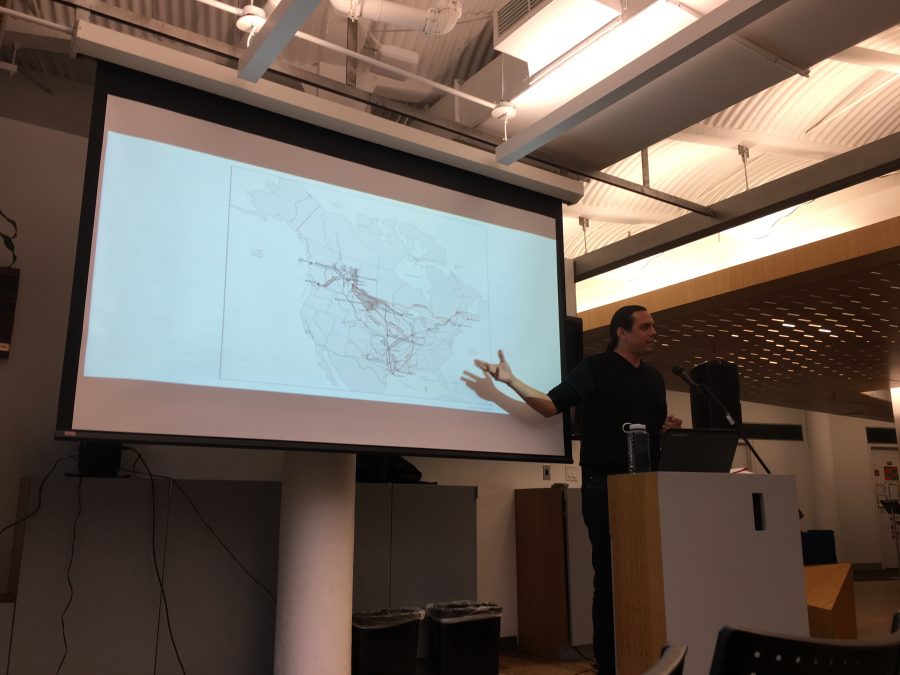While 2020 Democratic presidential candidates unveiled their environmental policies at a climate change forum on Thursday, a professor and Native American spoke to a group of NYU students about an about an often-neglected aspect of climate change — the role colonialism has played in its development.
The NYU Native Studies Forum hosted Nick Estes, an Assistant Professor in the American Studies Department at the University of New Mexico and a member of the Lower Brule Sioux tribe.
Estes brought up the “Water is Life” movement, which seeks to protect water sources from pollution through activism. Most recently, the movement was involved with non-violent protests against the Dakota Access Pipeline, which will run through historical site and Native American land Standing Rock in North Dakota if built — which it has been approved to be.
Estes discussed the history of the objectives of “Water is Life”, tracing its roots back to colonialism and the settlement of white men. He explained that countless families and reservations had been displaced by dams such as Big Bend, but were isolated from white settler communities — Estes himself grew up in one such community in Chamberlain, South Dakota.
“White settlers want indigenous land,” Estes said. “But they don’t want indigenous people.”
NYU Assistant Professor of History and Native Studies Forum Director Liz Ellis told WSN that she wanted to bring in Estes to provide a perspective often missing from current rhetoric surrounding climate change.
“With all the student interest in climate justice and all these other kinds of critical issues, we thought he’d be a really good person to speak from an indigenous angle as someone who’s deeply concerned about the environment and sustainable futures,” Ellis said.
Estes also spoke about the destructive effect colonialism had on both Native Americans and the U.S. water supply.
“When both land and water are taken, the past is lost with them, and so too is the prospect of a livable future,” Estes said. “In this way, to enact violence against the land and water is also to enact violence against those who depend on it for life.”
Estes closed by urging people to pay attention to the work that is being done by Native Americans to create a sustainable future. He said that amidst the proposal of the Green New Deal, Native Americans are working to provide methods of sustainable energy even though their land is overwhelmingly used for oil pipelines and coal mining. It was important to him that the work of indigenous people not be pushed aside in the name of sustainability.
Estes’ perspective was one that resonated in particular with CAS junior Paige Cook.
“As an indigenous person, we don’t have a lot of representation here at NYU,” Cook said. “I thought it was really interesting that he was able to verbalize a lot of the things that I felt and a lot of the ways that I’ve experienced life.”
Email Kayla Hardersen at [email protected].























































































































































